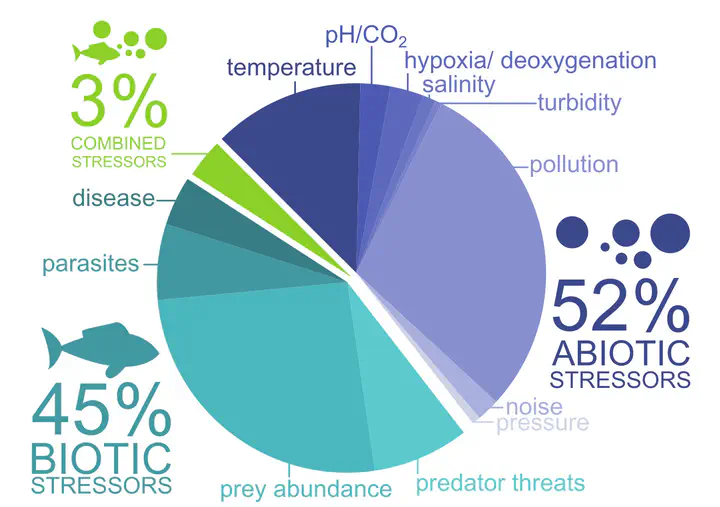 Studies investigating various stressors on coral reef fishes. Image credit: Björn Illing
Studies investigating various stressors on coral reef fishes. Image credit: Björn Illing
Abstract
Coral reef fishes and the ecosystems they support represent some of the most biodiverse and productive ecosystems on the planet yet are under threat as they face dramatic increases in multiple, interacting stressors that are largely intensified by anthropogenic influences, such as climate change. Coral reef fishes have been the topic of 875 studies between 1979 and 2020 examining physiological responses to various abiotic and biotic stressors. Here, we highlight the current state of knowledge regarding coral reef fishes’ responses to eight key abiotic stressors (i.e., pollutants, temperature, hypoxia and ocean deoxygenation, pH/CO2, noise, salinity, pressure/depth, and turbidity) and four key biotic stressors (i.e., prey abundance, predator threats, parasites, and disease) and discuss stressors that have been examined in combination. We conclude with a horizon scan to discuss acclimation and adaptation, technological advances, knowledge gaps, and the future of physiological research on coral reef fishes. As we proceed through this new epoch, the Anthropocene, it is critical that the scientific and general communities work to recognize the issues that various habitats and ecosystems, such as coral reefs and the fishes that depend on and support them, are facing so that mitigation strategies can be implemented to protect biodiversity and ecosystem health.